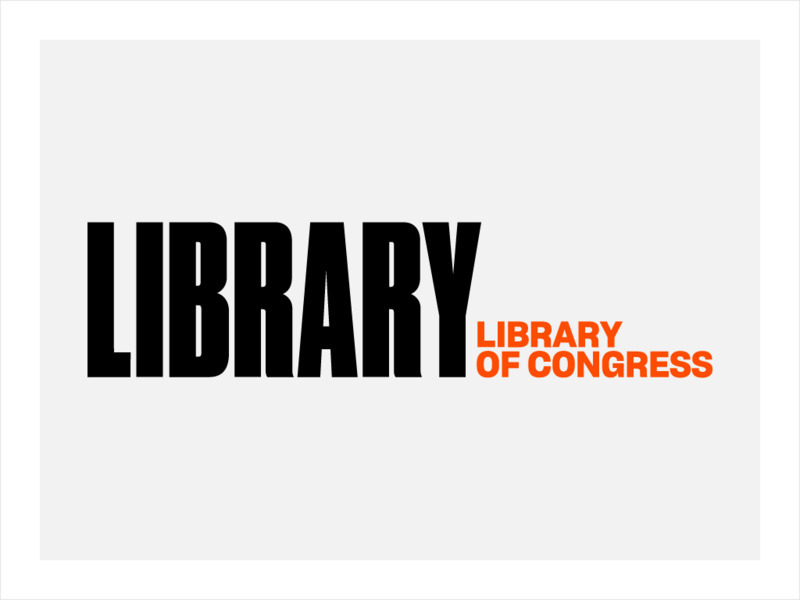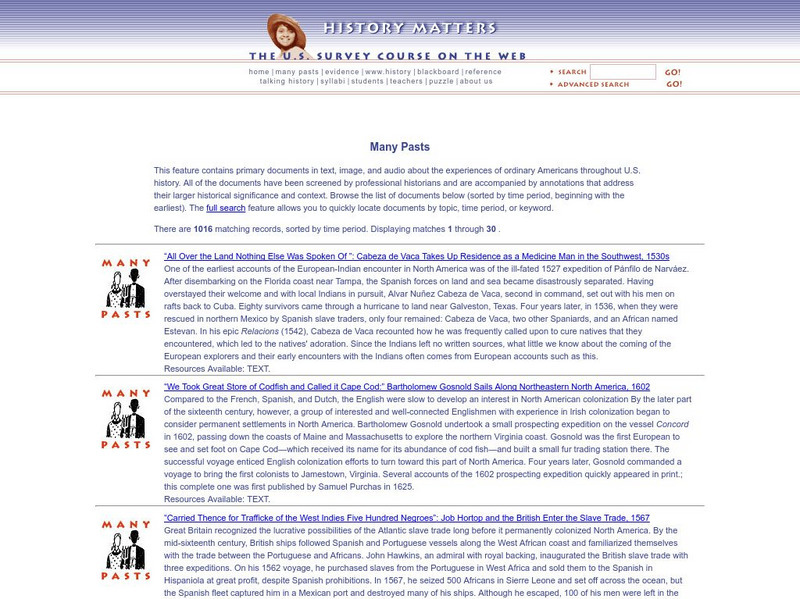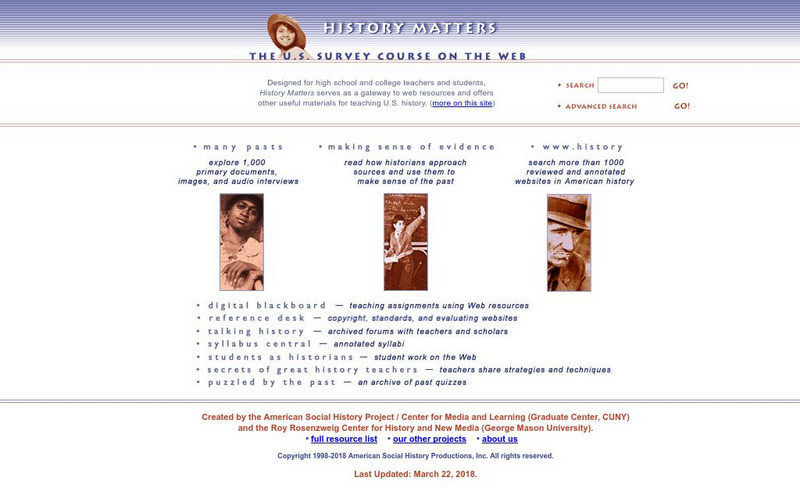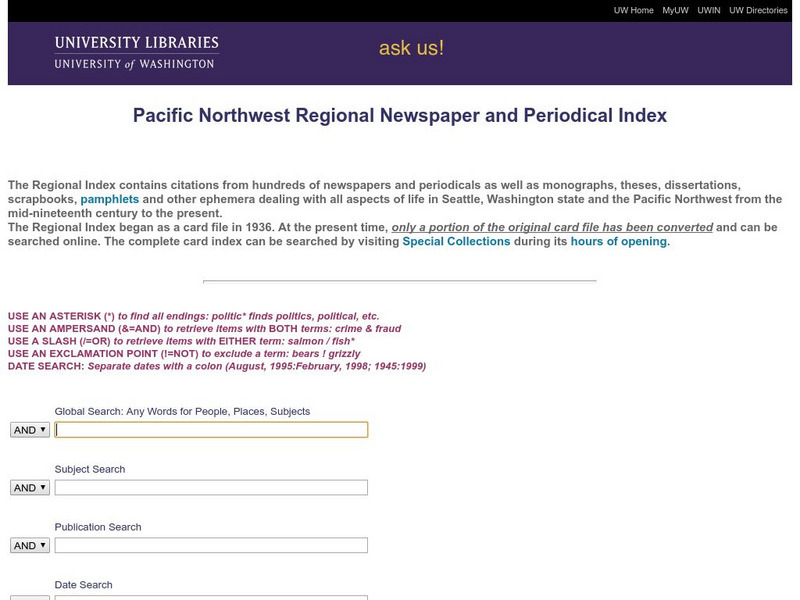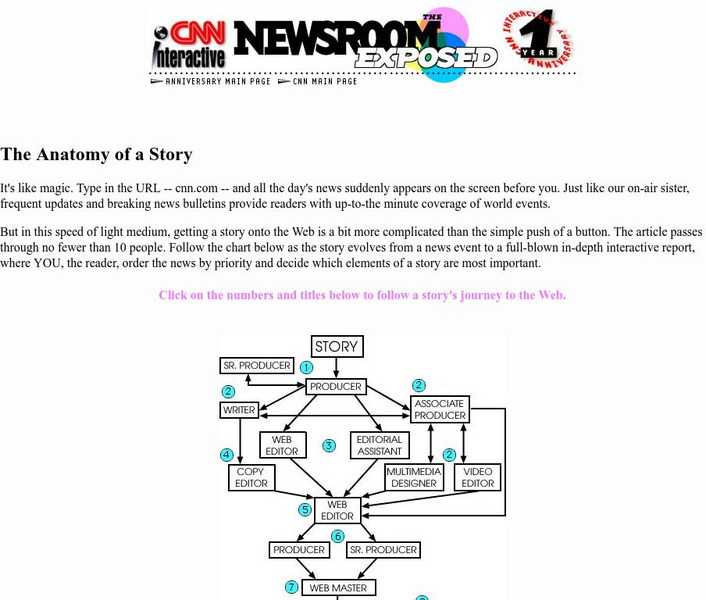Hi, what do you want to do?
National Endowment for the Humanities
Creating the Office of the Presidency
The United States needed an executive power, but it wanted to avoid a monarchy. Using James Madison's notes on the Constitutional Convention, young historians look at the juggling act the Founding Fathers did to create a role for the...
National Endowment for the Humanities
The Question of Representation at the 1787 Convention
While the Constitution is considered enshrined today, its current form is the result of haggling at a secret convention in 1787. Using transcripts from the meetings and various plans as drafted by the delegates, class members unpack the...
National Endowment for the Humanities
The Road to the Constitutional Convention
After defeating the most powerful nation in the world, the United States had to deal with its own weaknesses in the Articles of Confederation. Activities in the lesson plan include analyzing primary sources from the Founding Fathers to...
Constitutional Rights Foundation
What Should the US Do About North Korea's Nuclear Weapons?
North Korea, a shadowy nation distrustful of America, is working on a nuclear weapons program. What should the United States do? The question has plagued American presidents for years, but now young scholars get to make their...
iCivics
DBQuest: The Nashville Sit-In Movement
What was it like to be a part of the sit-ins during the Civil Rights Movement? Learners consider the question and whether the protests were effective using an online documents-based investigation. The program allows for virtual...
Cornell College
Dred Scott v. Sandford Supreme Court Decision
Dred Scott was a harbinger of the Civil War. An enslaved man claimed freedom because his owner had taken him into free territory. Not only did the Supreme Court rule that Dred Scott and his wife were to remain enslaved, but it also ruled...
Curated OER
Part III: Document-Based Question
Need a DBQ practice set? Whether or not your class is preparing for the AP exam, learners will benefit from analyzing primary source documents about economic and social change. For Part A, the short-answer questions, participants read...
Curated OER
Centers of the Storm: The Lyceum and the Circle at the University of Mississippi
Greek Revival architecture and the Civil Rights Movement? Sure! Examine how the Lyceum and Circle, two historic buildings located on the campus of the University of Mississippi, relate to integration and the 1962 riot on the university...
Houghton Mifflin Harcourt
The Progressive Era: Muckrakers
Using Upton Sinclair's The Jungle, guide your class in the process of identifying unknown terms using context clues and formulating text-based answers. The lesson plan includes a useful worksheet incorporating scaffolding questions on an...
National Endowment for the Humanities
The Debate in the United States over the League of Nations: Five Camps: From Voices of Consent to Voices of Dissent
Students explore and discuss Woodrow Wilson's concepts for peace and the League of Nations. They understand efforts made to foster American support for the League and discuss the opposition shown in the Senate.
National Endowment for the Humanities
Slavery and the American Founding: The "Inconsistency Not to Be Excused"
High schoolers examine slavery in the revolutionary and colonial eras of the United States. In this slavery lesson, young scholars investigate the presence of slavery in early America, the language of the Constitution, and the intent of...
National Endowment for the Humanities
Lesson 3: Religion and the Fight for American Independence
Pupils explore the role religion played in the American Revolutionary War. Using primary documents and writing exercises, students understand how religion was used in support of the war efforts and how specific religious groups responded...
National Endowment for the Humanities
Lesson 2: The Debate in Congress on the Sedition Act
Pupils research and discuss the provisions in the Constitution that supported the arguments for and against the Sedition Act. They articulate objections to and arguments in favor of the Sedition Act.
National Endowment for the Humanities
Chinua Achebe's Things Fall Apart: Oral and Literary Strategies
Readers are first introduced to Chinua Achebe's Things Fall Apart by making a map of Africa. They will better understand the novel's historical and literary contexts, European and African literary traditions, and how...
Library of Congress
Loc: Teacher Resources
This compilation of teacher resources has useful collections of primary sources, lesson plans, themed subject overviews, and ready-to-use presentations and activities to support the study of U.S. history at all academic levels.
Library of Congress
Loc: Primary Sources by State
An interactive map to search for extensive collections of primary sources for each of the United States.
Curated OER
History Matters: Many Pasts
These primary source documents are about ordinary Americans throughout US history. There is a full search feature. All the historical documents, whether they are text, image, or audio, have been vetted by a historian. They are initially...
Library of Congress
Loc: For Teachers: Analyzing Primary Source Documents
These student worksheets and activities help students analyze many different types of primary source documents. Life histories, objects, and photographs are all used to engage students.
Curated OER
History Matters: The u.s. Survey Course on the Web
Designed for high school and college teachers and young scholars, History Matters serves as a gateway to web resources and offers other useful materials for teaching U.S. history.
Brigham Young University
Euro Docs: Online Sources for European History
Connect to primary source documents (facsimiles. transcriptions, translations) that trace the history of Europe.
Internet History Sourcebooks Project
Fordham University: Medieval Sourcebook: History Through Primary Sources
This site from the Medieval Sourcebook answers the question: Why Study History Through Primary Sources? It provides complete information, a list of review questions, and bibliography information.
University of Washington
Pacific Northwest Regional Newspaper & Periodical Index
Covering newspapers, magazines, monographs, theses, dissertations and other material, this index goes back as far as the mid-nineteenth century. Very useful for locating primary source material on the Pacific Northwest region.
CNN
Cnn: Anatomy of a Story
A fun interactive site for finding out what happens in all departments of a broadcast newsroom.
Roy Rosenzweig Center for History and New Media
Teaching History: National History Education Clearinghouse
A vast resource filled with information on teaching history at all grade levels. There are links to podcasts, teaching materials, primary source documents, videos, and best practices in the teaching of history. Don't miss this fantastic...




















